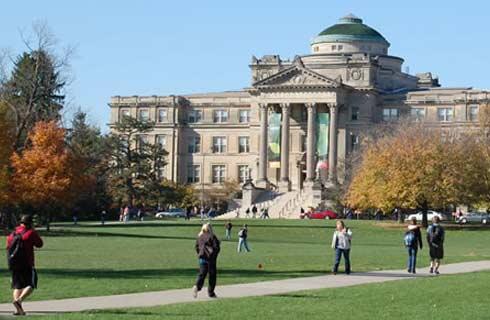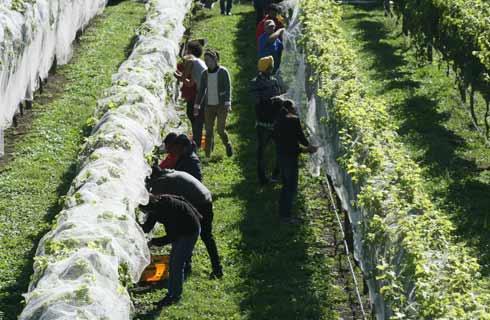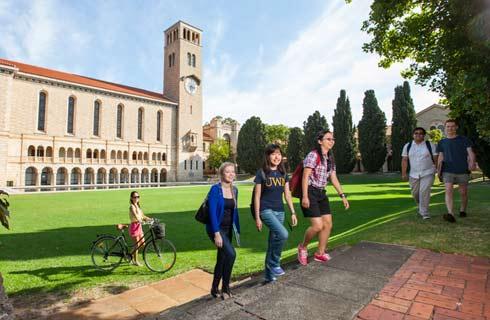理学学士-微生物学
Bachelor of Science - Microbiology

学历文凭
Bachelor Degree

专业院系
School of Fundamental Sciences

开学时间

课程时长

课程学费

国际学生入学条件
IDP—雅思考试联合主办方

雅思考试总分
6.0
- 雅思总分:6
- 托福网考总分:80
- 托福笔试总分:160
- 其他语言考试:Pearson Test of English - 50 overall and minimum 42 in each communicative skill.
CRICOS代码: MY0087
申请截止日期: 请与IDP联系 以获取详细信息。
课程简介
Join Massey’s unique Bachelor of Science (Microbiology) to explore and understand microbes in the environment, from the soil to the air, and in the human body. Microbiology is an essential science that helps us understand the microbes in the environment, including microbes that dwell in the soil, air and water, in our food and inside people, animals and plants. Microbiology can impact on many different areas, such as agriculture, where rumen microbes are both essential to dairy and good industries, but also responsible for much of New Zealand’s carbon emission; bioprotection, where efforts to preserve native birds (kiwi) and plants (kauri trees) depend on expert control of microbial pathogens microbes have applications as model systems to answer questions beyond the immediate range of microbiology, such as the causes of cancer or birth defects; green and bio-based technologies, where microbes help preserve our environment by producing bio-based materials for use in diagnostics and vaccines or by harnessing solar energy for fuel production.
相关申请
 预科
预科 奖学金
奖学金 实习机会
实习机会 在校学习
在校学习 跨境学习
跨境学习 校园授课-线上开始
校园授课-线上开始 在线/远程学习
在线/远程学习
开学时间&学费
学费信息仅供参考,请与IDP联系以获取详细信息
| 开学时间 | 时长 | 学费 | 地点 |
|---|
学校排名

世界排名501
数据源:
泰晤士高等教育世界大学排名
关于梅西大学

Te Kunenga ki Pūrehuroa梅西大学是一个全球闻名的高等教育院校,拥有90多年的教学历史,名列全球前250位(2025年QS世界大学排名),被评为QS 5+星级。梅西大学开设有160多种本科和研究生学历资格课程,还开设有跨学位选修课,让学生获得个性化的学习体验。该校下设多个专业院系,学生在各院系跟随知识渊博的学者进行学习,开展有影响力的研究。梅西大学的学历资格课程以就业为中心,旨在培养在各行业领域有就职能力的毕业生。该校与新西兰和全球的工商业界建立有合作伙伴关系,大量课程提供与工作相结合的学习机会。 梅西大学拥有2.6万名学生和4800多名国际学生,因而成为全球国际学生比例最高的前100所大学之一(2025年QS)。学生将在充满亲切友好的社区氛围的校园中愉快地学习和生活,有大量参与课外社团、活动和体育运动的机会。 梅西大学有三个充满活力的校区,分别位于北岛城市奥克兰、北帕默斯顿和惠灵顿。这三个地方都有各种娱乐选择、体育运动和文化遗产,还有大量活动和场所,让学生能够愉快地享受闲暇时间。这三个校区都在机场附近,从那里,国际学生可以迅速飞往新西兰其他地方,在奥克兰和惠灵顿前往世界各地也非常方便。
本校相关课程

兽医学学士(专业阶段)
学历文凭
Bachelor Degree
开学日期
课程费用总额


应用经济学学士
学历文凭
Bachelor Degree
开学日期
课程费用总额


兽医学硕士
学历文凭
Masters Degree (Taught)
开学日期
课程费用总额


兽医学硕士
学历文凭
Masters Degree (Research)
开学日期
课程费用总额


信息科学硕士-计算机科学
学历文凭
Masters Degree (Taught and Research)
开学日期
课程费用总额


美术硕士
学历文凭
Masters Degree (Taught)
开学日期
课程费用总额

其他相关课程

生物医学学士
 皇家墨尔本理工大学
皇家墨尔本理工大学学历文凭
Bachelor Degree
开学日期
课程费用总额


哲学硕士-生物医学和生物化学
 澳大利亚国立大学
澳大利亚国立大学学历文凭
Masters Degree (Research)
开学日期
课程费用总额


生物医学学士
 詹姆斯·库克大学
詹姆斯·库克大学泰晤士高等教育世界大学排名:361
学历文凭
Bachelor Degree
开学日期
课程费用总额


理学学士(海洋生物学)
 弗林德斯大学
弗林德斯大学泰晤士高等教育世界大学排名:307
学历文凭
Bachelor Degree
开学日期
课程费用总额


理学学士-海洋生物学(荣誉学位)
 弗林德斯大学
弗林德斯大学泰晤士高等教育世界大学排名:307
学历文凭
Bachelor Degree with Honours
开学日期
课程费用总额


城市与环境规划学士/海洋生物学理学学士
 格里菲斯大学
格里菲斯大学泰晤士高等教育世界大学排名:258
学历文凭
Dual Degree
开学日期
02 March 2026
课程费用总额
AUD 167,500










 新西兰
新西兰